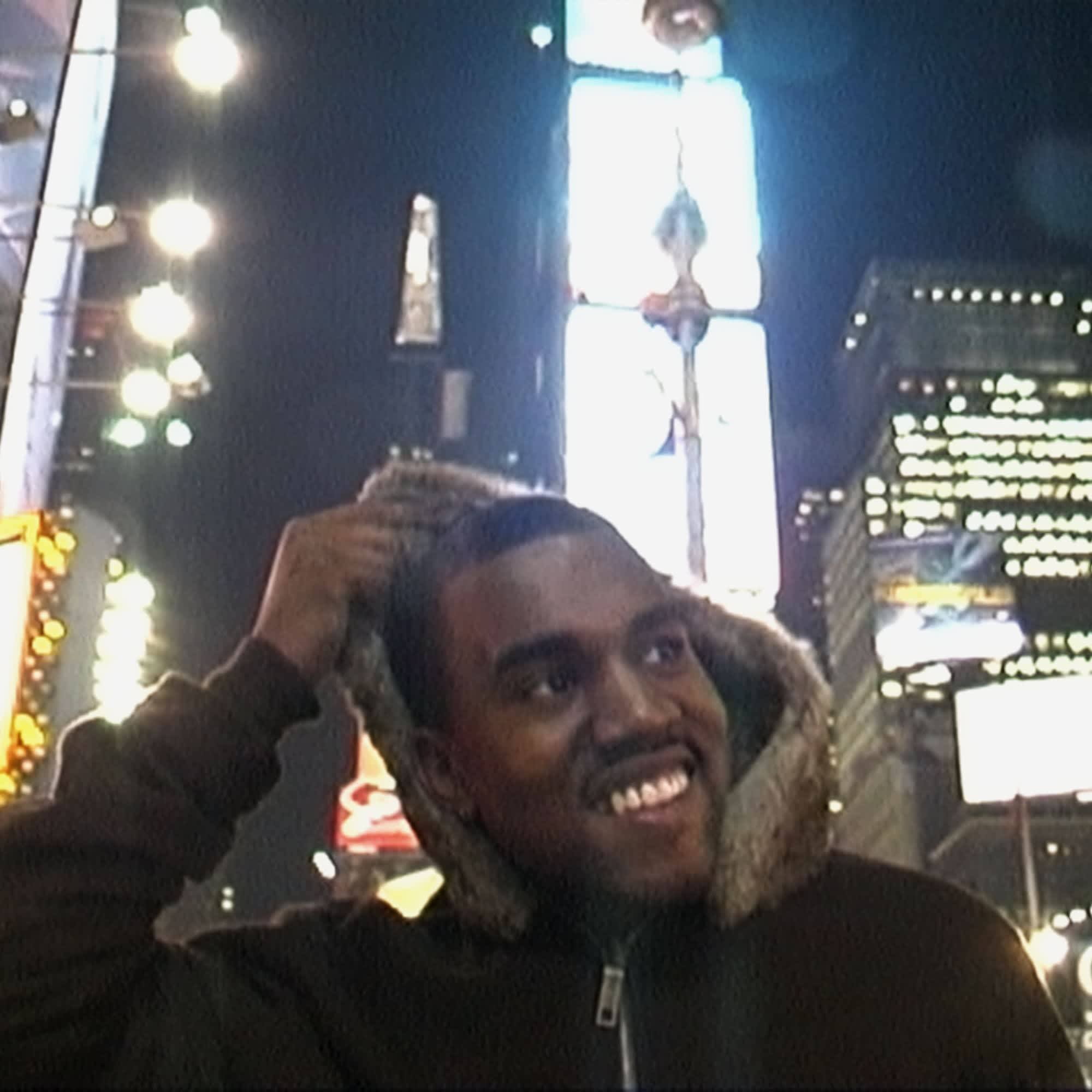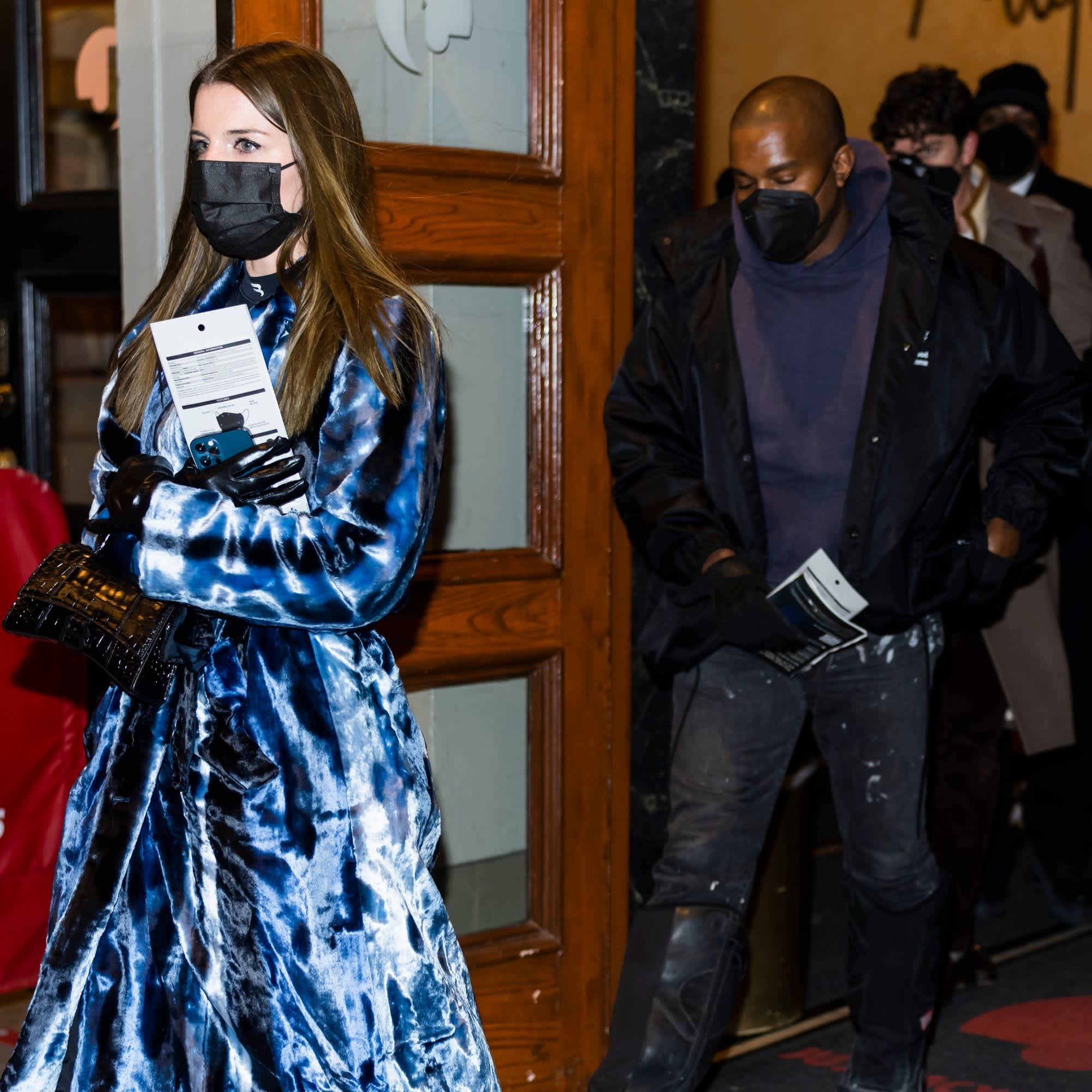
- POPSUGAR Australia
- Celebrity
- Kanye West's “Jeen-Yuhs” Doc Recalls “The College Dropout” Era
Kanye West's “Jeen-Yuhs” Doc Recalls “The College Dropout” Era

Netflix is giving us the old Kanye West with its new documentary “Jeen-Yuhs: A Kanye Trilogy.” The first chapter of the three-part docuseries premiered at the Sundance Film Festival in January then hit Netflix on Feb. 16, giving viewers insight into the rapper’s early days through video footage filmed over the course of 20 years. The second chapter arrived on Feb. 23, which walks us through the entire recording of West’s debut album, “The College Dropout,” as well as his journey of becoming a well-respected rapper.
The documentary is directed by two of West’s frequent collaborators, Coodie Simmons and Chike Ozah, and features tons of star-studded cameos, including Beyoncé, Kobe Bryant, Pharrell Williams, Mase, and, of course, JAY-Z. However, the best appearance comes from West’s late mother and No. 1 cheerleader, Donda West.
Though West was involved in the making of the project, the 44-year-old rapper recently demanded that he get the final edit and approval of the doc before its Netflix release. “I’m going to say this kindly for the last time. I must get final edit and approval on this doc before it releases on Netflix,” he wrote on Instagram. “Open the edit room immediately so I can be in charge of my own image. Thank you in advance ?.”
In a recent interview with “Entertainment Tonight,” Simmons and Ozah revealed why they didn’t grant West’s request. “Our company is called Creative Control, so that tells you a lot right then and there,” Ozah said. “Input is always welcome. We’ll use that input and take the best from it as it aligns with the film and objective goal of the film we’re trying to make.”
Simmons added: “I said to myself, ‘Trust God.’ God led you up to this point. You got to continue to trust God and that was it. And I know God’s gonna work it out because this film is very important for everybody who has a dream, for everybody after us.”
Ahead, check out the biggest takeaways from parts one and two of “Jeen-Yuhs: A Kanye Trilogy.”
Act 1: Vision
- West began his music career as a producer, making cheap beats for other artists. After leaving Chicago and moving to New York in hopes of getting a record deal, West made beats for artists like JAY-Z, Talib Kweli, and Mos Def, but the only reason he even made beats in the first place was so that he could rap over them.
- In an attempt to get signed by Roc-A-Fella Records, West once bum-rushed the record label’s office and went around playing his music to the employees. “After producing half of The Blueprint, his sights were set on getting signed with the number one rap label, Roc-A-Fella Records. He just needed to convince JAY-Z and his cofounders, [Damon] Dame Dash and [Kareem] Biggs [Burke], that he deserved a spot on the Roc,” director Coodie said in a voiceover. Unfortunately, his attempt failed, but it definitely got him noticed.
- West had a tough time getting signed. Even though the A&R of Capitol and Rawkus Records personally wanted to sign West, the heads of the labels didn’t believe a producer/rapper could sell records. Damon was also initially interested in West and said he would sign him, but he didn’t follow through on his promise until much later and only after giving him the runaround.
- West’s late mother, Donda West, kept him grounded and humble as his career started taking off. As West prepared for his interview with MTV’s You Hear It First, Donda was shown rapping her son’s lyrics and giving him some important life advice in a throwback clip. “You got a lot of confidence, come off a little arrogant, even though you’re humble and everything, but it be important to remember that the giant looks in the mirror and sees nothing,” she told him. “I think the way you handle yourself is really just perfect. But at the same time that you remember, like, to stay on the ground, and you could be in the air all at the same time.”
- Scarface was supposed to do the hook on “Jesus Walks,” but he never returned to the studio to record. When West and Scarface got in the studio together, West played two tracks for him, “Jesus Walks” and “Family Business,” hoping they could work together and West could finally get signed to Roc-A-Fella. “Even though Scarface never made it back to record, getting validation from one of the best rappers alive was more encouragement for Kanye to keep moving forward,” Coodie explained.
- West predicted his Ye name change. West’s first name, Kanye, is an Ethiopian-French name that means “the only one.” However, he most recently changed it to “Ye.” In an old clip, West is seen predicting his name change when he notices that his last name was left off of the program for WGCI’s 2002 music conference. “Kanye. Now, who the f*ck is Kanye? . . . My name is Kanye West,” he says. “This should’ve been like, ‘Ye.’ Chicago’s very own Ye.”
Act 2: Purpose
- First and foremost, Kanye is a rapper. After getting signed to Roc-A-Fella, West still had to work hard to prove his rap skills were just as good as his production skills. “People know about the beats . . . I love doing beats. I ain’t frontin’, but that was like an internship to me,” West says in the documentary. “I ain’t the number one producer. I’m a rapper. Put me in the ranks of the rapper.” According to Simmons, Roc-A-Fella still saw West as a producer first. “Big Face” Gary – an A&R at the label at the time – personally co-signed West as the “best rapper-producer in the f*cking game,” but the rapper was intent on being recognised solely as a rapper.
- West rapped for JAY-Z while “The Blueprint 2” was being recorded to prove he could be taken seriously as a rapper. West sat in the studio while JAY-Z was recording “The Bounce” and rapped his verse that would later appear on the track. The hip-hop mogul’s cosign convinced Dame Dash to feature him on the “Paid in Full” soundtrack.
- West wanted to record having his wires removed, but he legally wasn’t allowed to. During a trip to the dentist, West wanted to continue filming for his documentary, but his dentist told him it was technically illegal to do so. But Simmons still managed to get the footage, which was later featured in the “Through the Wire” music video.
- Roc-A-Fella Records put “The College Dropout” on the shelf after West’s car accident. Because of his car crash, West was forced to call in favors for his debut album since Roc-A-Fella wouldn’t open up his recording budget. The rapper recorded his songs elsewhere, like at Jamie Foxx’s at-home studio, where the two worked on “Slow Jamz.” He also borrowed studio time from other artists like Pharrell.
- Pharrell was lost for words when he realized West recorded “Through the Wire” with his jaw wired shut. While West played the song for Pharrell, the producer walked out of the studio shaking his head in disbelief. “Through the Wire? Do you know that’s what he’s saying?,” Pharrell says in the documentary. “That sh*t is phenomenal . . , you’re one of my favorite artists.” Pharrell also gave West some heartfelt advice on keeping his drive as an artist. “You gonna make it. And when you make it, keep the same perspective. Still keep the same hunger . . . As long as you keep that, the conduit between those two places clear for that energy to come through, you gonna always be ill for the rest of your life.”
- West’s Chicago peers were integral in helping spread the word about his music. Comedians like DeRay Davis and Simmons himself never missed an opportunity to show West love during their standup sets. In the documentary, Davis gives West a big shoutout for his feature on JAY-Z’s “The Bounce” and Coodie also boosts West’s name on stage. West loved being in the studio back home in Chicago because he said the collaborative energy was “incredible.”
- After signing to Roc-A–Fella Records, West went back to making beats to support himself. West’s accident killed his momentum with Roc-A-Fella, so his debut album wasn’t a priority to the label. He went back to producing for artists like Young Steff and Nappy Roots to help get himself by. “I don’t know if you know that the reason why I make tracks, at this point, is to have enough money to pay for my t-shirts. To have enough money to pay for my mixtapes,” West says in the documentary.
- West and his team snuck into MTV to finish the “Through the Wire” video. “With no budget, Chike was getting us in at MTV after hours, so we could use their equipment to finish it,” Simmons reveals in the documentary. To complete the music video, it cost West $33,000 out of his own pocket – but it finally got the world’s attention. Thanks to that video, “The College Dropout” got a release date and a budget.
- West put his jaw surgery on hold to finish recording his debut album. Five months after West’s car accident, the rapper returned to the dentist hoping to get some good news about his recovering jaw. But in order to get it fixed, West would’ve been required to pause his music career – something he wasn’t willing to do. “The surgery Kanye needed would put him out of pocket for way too long,” Simmons says in a voiceover. “With all the plans he had for getting his album out, he decided not to get the surgery, knowing he couldn’t afford to miss a beat.”
- Donda predicted the year that West’s career would take off. During a 2003 New Year’s Eve party, West’s mother, Donda, beamed with joy over her son’s budding success. In her New Year’s resolution, she declared “Everybody who’s been with Kanye, we’re gonna make it. We’re gonna do it. 2004 is going to be our best year ever.” And she was absolutely right.
- West purposely sought out a “mixed Jesus” for his Jesus Walks music video to avoid critiques. In the documentary, Simmons reveals that he wrote a video idea for West’s “Jesus Walks” single before his car accident. But by the time the song became a “cultural phenomenon,” West had already filmed different versions of the video with other directors. However, West chose to reshoot with Simmons because he didn’t like the other videos. The director called Channel Zero co-founder Danny “DNA” Sorge to play Jesus in the new video because West said he didn’t want a “Black Jesus.” “He want a mixed Jesus, so he don’t got to argue about whether Jesus was Black or white,” Sorge states in the documentary.
- “The College Dropout” was West’s own form of rehabilitation. “I used this entire album as my rehabilitation,” West reveals in a voiceover. “Instead of staying at the hotel, I snuck in and made songs that inspired me. Songs that gave me life. I feel like this album was kind of like my angel that helped heal me. It revived my spirits.” West’s debut would go on to be 4X certified-platinum and the best-selling album of his career.
Part three of “Jeen-Yuhs: A Kanye Triology” will be available to stream on Netflix on March 2.




